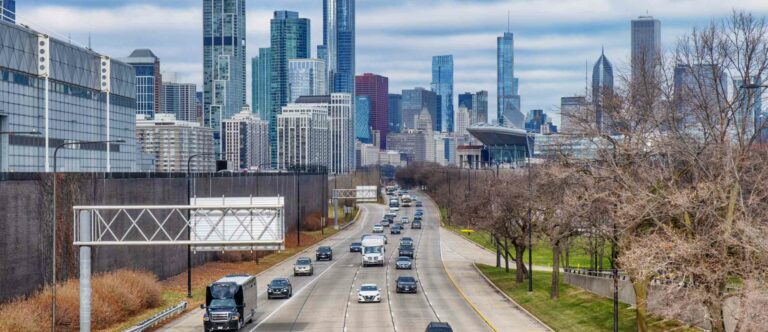 Last month, an appellate court denied additional workers’ compensation benefits to an injured beverage distributor because he did not seek job rehabilitation services in light of his diminished abilities stemming from a back injury caused by a degenerative condition. In Euclid Beverage v. The Illinois Workers’ Compensation Commission et al., John Bohentin had been working in the beverage distribution industry for over thirty years and at the North Aurora business Euclid Beverage at the time he injured his back while stocking a grocery store cooler in 2011. Multiple doctors diagnosed and treated Bohentin for an aggravated injury they testified was common for his age.
Last month, an appellate court denied additional workers’ compensation benefits to an injured beverage distributor because he did not seek job rehabilitation services in light of his diminished abilities stemming from a back injury caused by a degenerative condition. In Euclid Beverage v. The Illinois Workers’ Compensation Commission et al., John Bohentin had been working in the beverage distribution industry for over thirty years and at the North Aurora business Euclid Beverage at the time he injured his back while stocking a grocery store cooler in 2011. Multiple doctors diagnosed and treated Bohentin for an aggravated injury they testified was common for his age.
In 2011, Euclid Beverage terminated Bohentin’s employment because he could not be accommodated with light duty. However, less than three months later a manager at the company offered Bohentin a job at a warehouse managing people. He declined to interview for the position, and the hiring manager testified that the position did not rely on physical ability. Two months afterward, a doctor released Bohentin to work on the following conditions: not lifting more than fifteen pounds and alternating between sitting and standing. Bohentin then filed for workers’ compensation benefits, which Euclid Beverage agreed were appropriate and paid.
In 2016, an arbitrator found Bohentin eligible for several benefits including temporary total disability from 2011 to 2012, maintenance benefits from 2012 to 2015 which were intended to help supplement his income while he sought employment or training, and permanent partial disability from 2015 through the end of his disability. His employer appealed the arbitrator’s decision, and the Workers’ Compensation Commission adopted the award in part – the temporary total disability and maintenance – and modified the permanent partial disability to a percentage of a person as a whole which also limited the number of weeks he could collect.
Euclid Beverage then appealed again to the Circuit Court, which affirmed the disability benefits while overturning the award for maintenance benefits. The reason for overturning the maintenance was that the record did not reflect that Bohentin did not participate in a vocational rehabilitation program or a self-directed job search between 2012 and 2015. Bohentin then appealed to the appellate court.
According to the opinion issued by the Illinois Appellate Court, the law only mandates that an employer pay maintenance benefits if an injured worker was or is enrolled in a vocational rehabilitation program. The record of the case does not reflect that Bohentin ever sought or gained employment after being terminated from Euclid Beverage. As such maintenance benefits are neither mandatory or appropriate because Bohentin did not return to work, even though he was able.
Talk to a Workers’ Compensation Attorney Today
Eligibility for benefits under Illinois workers’ compensation laws can be complicated and confusing. To speak with an experienced Chicago workers’ compensation attorney about your claims for a workplace injury, call or contact the office of Harvey L. Walner & Associates in Chicago today to schedule a free and confidential consultation of your claims.


 Skip to content
Skip to content








